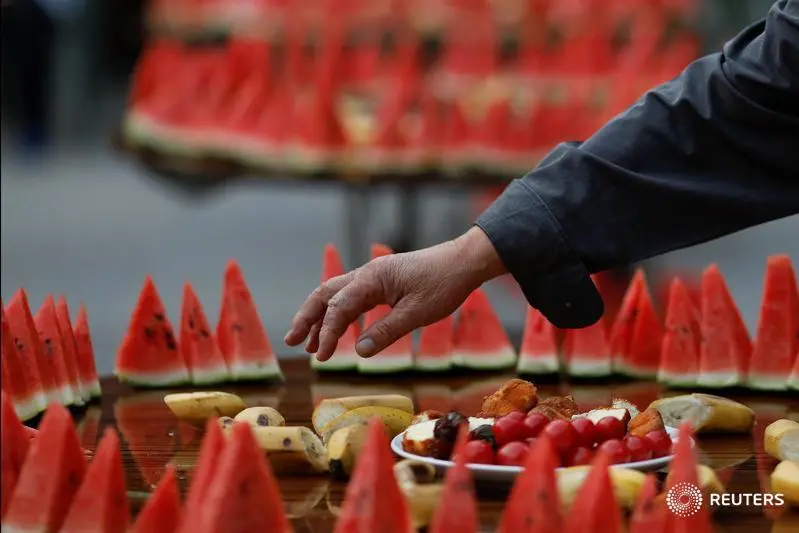PHOTO
Saturday, Jun 24, 2017
Dubai: After a month spent in frugal eating and long fasting hours, it is important not to reverse the benefits of Ramadan by letting go and indulging in feasting during Eid Al Fitr, doctors have said.
Dr Zaib Yusuf Shaikh, medical director and internal medicine specialist at Mobile Doctors 24-7, UAE’s first medical call centre, told Gulf News: “During Eid, hospitals report emergency cases dealing with acute gastritis, diarrhoea, vomiting which are related to overeating.”
He added: “These digestive disorders are triggered during Eid festivities because the human body needs to be gently eased into eating and drinking water at regular hours, sleeping at regular bed time to reestablish the circadian rhythm of your body.”
Dr Zia Ul Hasan, specialist endocrinologist at NorthWest Clinic, explained the hormonal changes that our body undergoes during the month of Ramadan. “One of the hormones that our pituitary gland produces is the Anti-Diuretic Hormone (ADH) that controls excess loss of water through our kidneys when we are dehydrated and regulates our blood pressure. This is particularly significant during Ramadan.
“The other is aldosterone, the hormone produced by our adrenalin gland that regulates the electrolyte and fluid balance of our body. When we fast, the body adapts to low water content and low electrolyte balance and the kidneys retain fluid. Once out of the fast, it is very crucial to restore this delicate electrolyte balance gradually by slowly increasing fluid intake.”
The average need for an adult is to have at least 2.5 to three litres of water for a day.
Both doctors advise that people must avoid fizzy and sweetened drinks which further upset electrolyte balance and try and have plain water or coconut water and space it out during the day during Eid to rehydrate the body.
“It is the peak of summer and the heat and humidity can cause a loss of minerals through sweating as well, so one must reintroduce water slowly and regularly into the routine after the monthlong fast. This will not only flush out the kidneys and stop any water retention in the body, it will also regulate blood pressure and revive people who may be feeling dehydrated,” said Dr Hasan
After having training to eat smaller portions and only during suhour and iftar hours, the body gets adapted to long hours of fasting. If done correctly, the month of Ramadan helps detoxify the body and get used to lighter eating habits. During Eid, it is important not to reverse that.
Advising on food intake, Dr Shaikh said that people celebrating Eid must remember not to overload their system with excessive sugar, oil and spices as the monthlong fast has not only restricted their food intake but made them incapable of digesting so much food at regular intervals. “Our bowels get attuned to smaller eating window and insulin hormone gets regulated and used to long hours of fasting.”
Giving an illustrative chart of what to eat when, he said: “Instead of three large meals during Eid, it is advised an individual should have five meals with restricted portion size but balanced with protein, carbohydrates and fats so as not to overload the digestive system.”
Breakfast: Have a light breakfast such as fruit, nut and yoghurt smoothie with no added sugar. One can introduce coconut water in between meals. A mid-morning snack of one portion of a fruit would be fine. Fruit juices are an absolute no no as they are loaded with sugar and have no fibre.
Lunch: Load half your plate with salad full of raw garden-fresh greens, tomatoes and cucumber and have it first, followed by a sautéed vegetable dish and one portion of wholemeal bread/chapati.
Afternoon snack: Have a fistful of nuts — walnuts, almonds and cashews.
Dinner: Start with a light clear lentil/vegetable soup. Then load a quarter of your dinner plate with salad, and have it after soup. After this, have your main course which can be a meat stew or grilled fish, sautéed vegetable and one portion of bread.
For dessert: Usually people indulge their sweet tooth during Eid but it is advised not to overload the system with too much sugar and restrict the portion size of dessert. Green tea is a good finale to dinner.
Sleep: Since the body gets attuned to sleeping at late hours and getting up early morning for suhour, it is important to restore the original sleeping rhythm during Eid break. Try and get up early, have breakfast and then not go back to sleep. One can do this by playing board games with family, involving in home chores so that by evening, the body is sufficiently tired and one can have early dinner and retire to bed. The readjustment of sleeping pattern will take a few days and during this time, it is important to avoid long siestas during the afternoon, advise doctors.
By Suchitra Bajpai ?Chaudhary Senior Reporter
Gulf News 2017. All rights reserved.





















